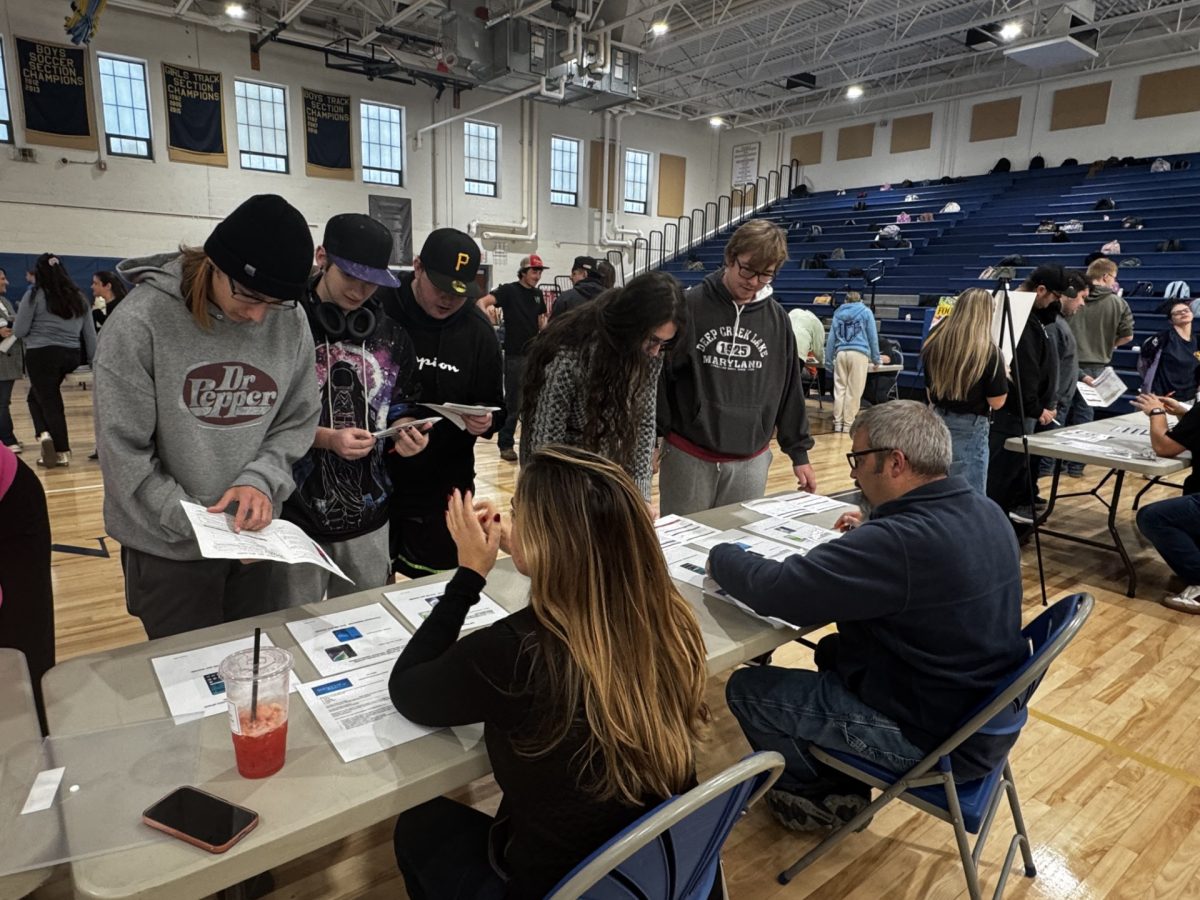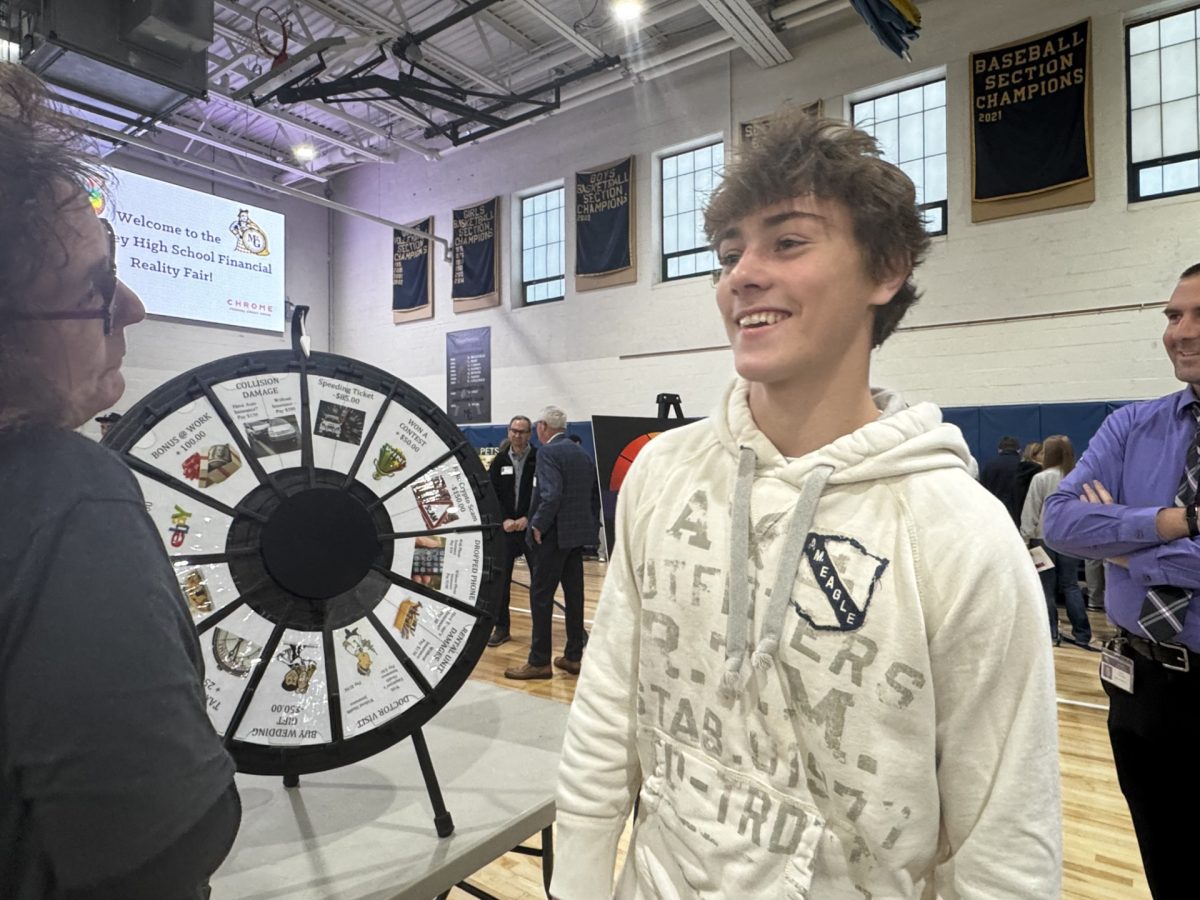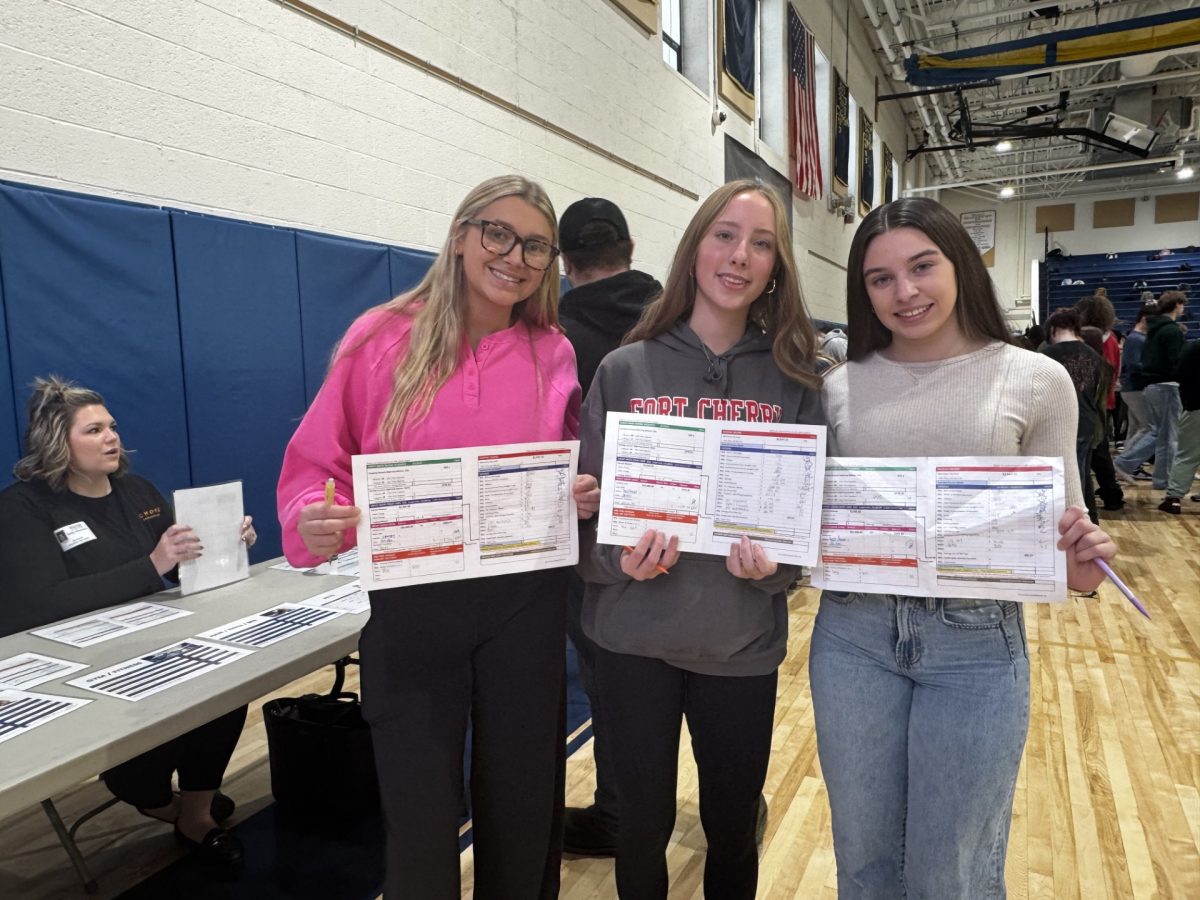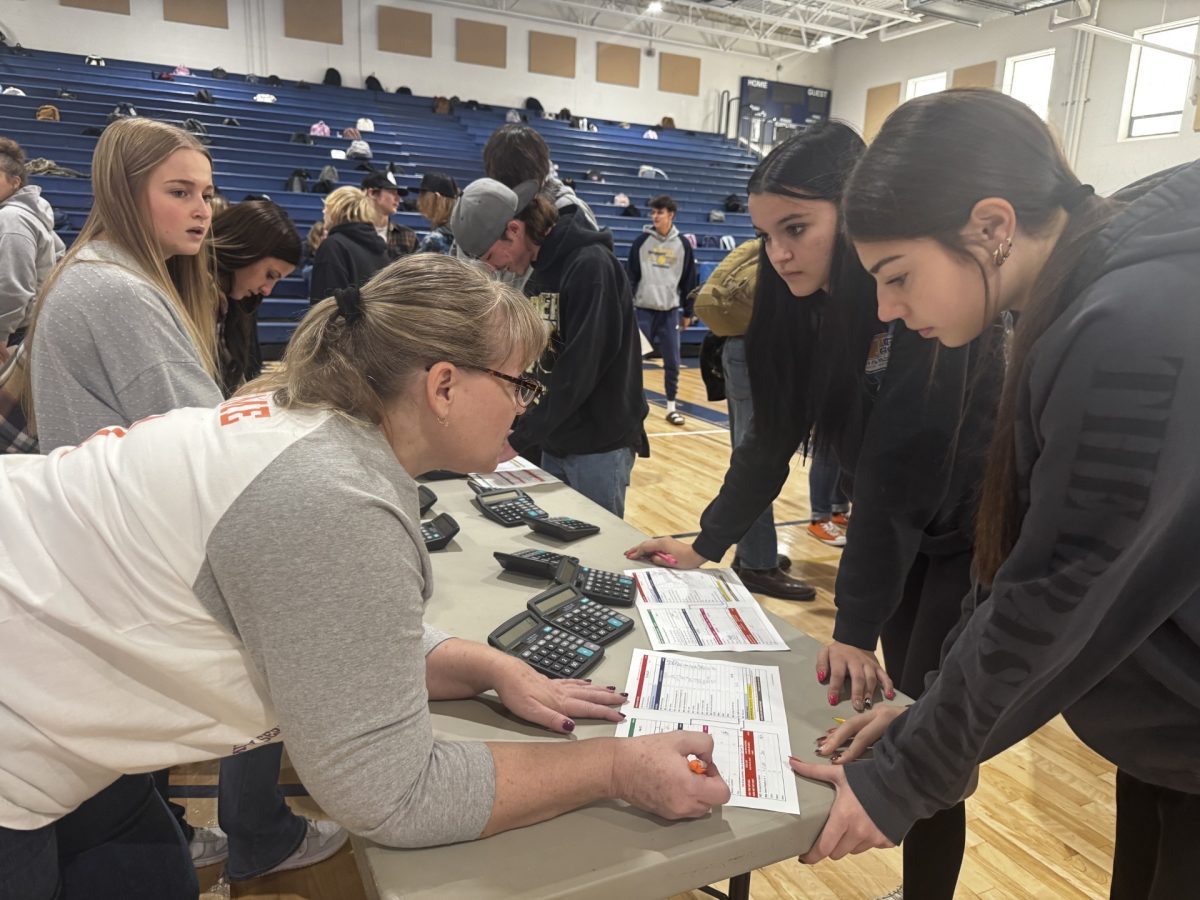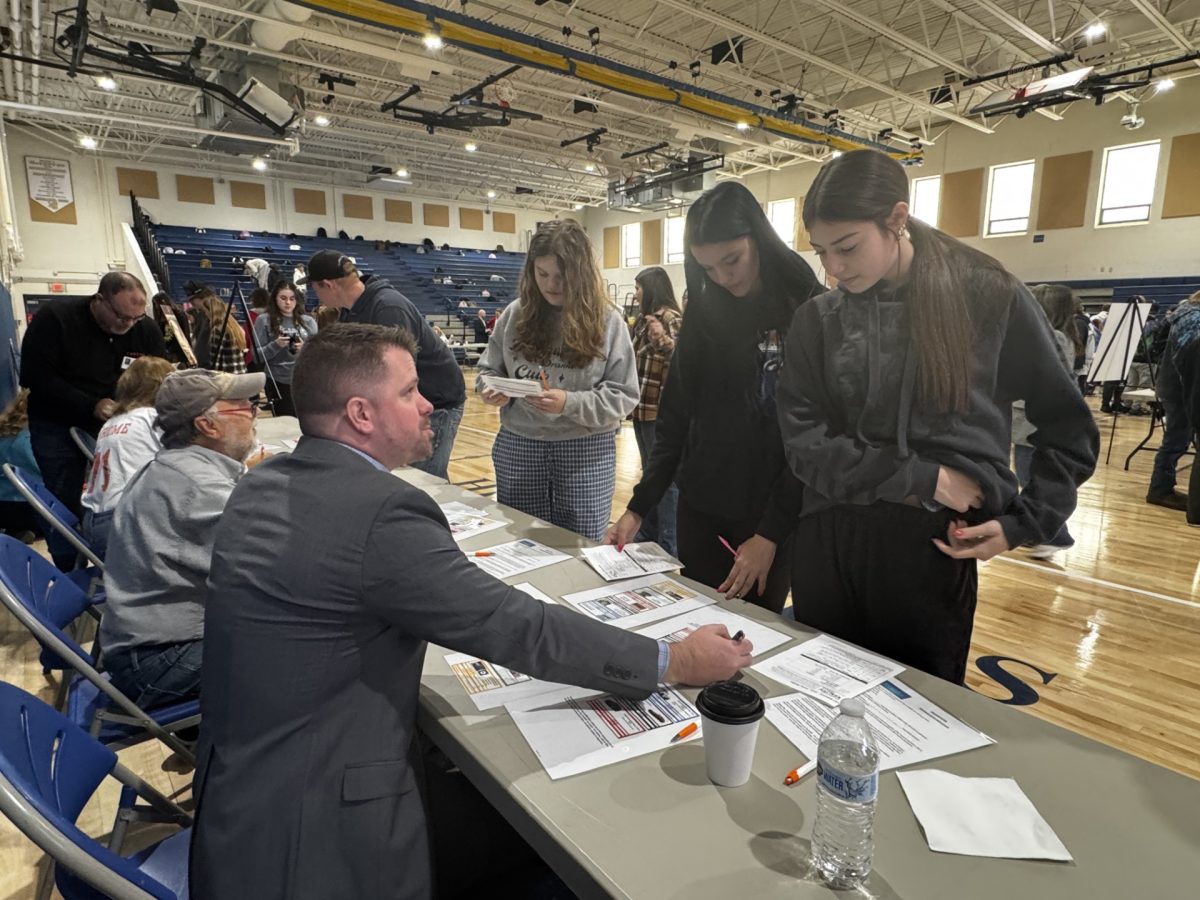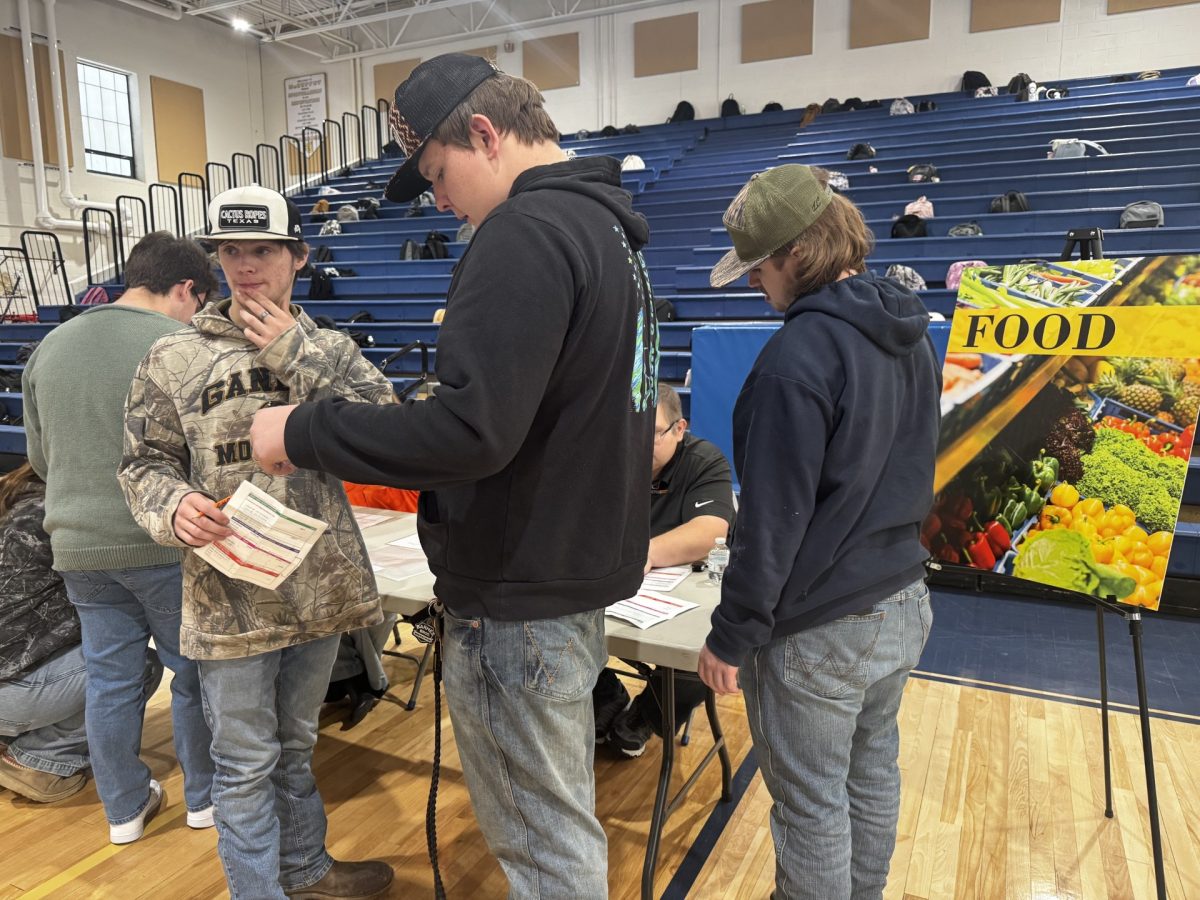Getting fiscally fit McGuffey students take part in Financial Reality Fair
McGuffey High School and Middle School students got a dose of reality – financial reality – on Thursday.
“I didn’t realize it cost for some things,” said Emma McAnallen, a McGuffey High School junior.
The school district, in partnership with CHROME and Washington Area federal credit unions, offered a Financial Reality Fair for the high school’s juniors and seniors, and middle school students.
The Financial Reality Fair provided students with a hands-on budgeting simulation aimed at helping them to gain practical knowledge and awareness of personal financial management in a one-day, “real world” environment.
The event has also been held at Trinity Area, Bethlehem-Center, and Washington high schools during the 2025-26 school year.
“The Financial Reality Fair concept is a unique opportunity for students to experience the financial challenges and the real-world costs of expenses they will face when they start life on their own,” said Jasmine Hughes, Vice President of Marketing and Growth Strategy for CHROME. “Some people are in financial distress from mistakes they’ve made when they were 18, 19, or 20 years old, so we want to help them not make mistakes early on that will cost them in the future.”
Held in the school’s gym, students spent the morning budgeting their monthly expenses to make ends meet while accounting for housing, insurance, cellphone, transportation, food and other essentials.
Volunteers from the school district and local businesses and organizations helped to staff the many tables – pets, transportation, part-time jobs, food, internet and TV, clothing, entertainment, loans, furniture, and more – throughout the day.
Aliesha Walz, President and CEO of the Washington County Community Foundation, who volunteered at the housing table where students could opt to live at home, rent an apartment, or purchase a home, enjoyed being part of helping students learn what kinds of life decisions they will face in the future.
“(The fair) is giving them real-world perspectives of what life costs as an adult,” said Walz. “It’s great to see them deliberate over the choices they have and then make sound financial decisions. They were so receptive. We’d give them feedback and you could see them mulling it over. It was fun.”
John Butler, an auditor for CrossState Solutions, helped students with their monthly food budget. Students were tasked with deciding how often they wanted to prepare their own meals at home versus eat at restaurants.
The cost of eating out shocked some of the students. Butler said more than half of the high school students opted for the “eat with parents” or “eat at home” choices – $175 and $422 per month, respectively, over other choices, including eat at home 90% of the time and at sit-down restaurants 10% of the time ($565 per month).
“It’s been fun to see the budgeting process, seeing what monthly expenses cost, through their eyes,” said Butler. “They come to the table and it’s like, ‘Wow, I didn’t know it costs this much to eat every month.’ So they are coming up with ways to stretch their food budget.”
One group of students said they would shop at Sam’s Club and Aldi, while two junior students discussed cutting out trips for coffee drinks.
After students had budgeted for essentials, they had the opportunity to explore and purchase other goods and services including having a pet, hair/nails/spa treatments, gym/fitness memberships, and charitable donations.
The fair helped junior Averie Meeks understand the importance of saving and budgeting.
For her, the most challenging part was decision-making.
“I think I did pretty well,” said Meeks, who chose a career as a labor and delivery nurse and, based on her financial decisions, ended up with $270 in money left over each month.
She settled for purchasing a 2015 Chevrolet Cruz, and the cheapest monthly cellphone plan, but was able to purchase and care for two hamsters and a higher-end television and internet package with two streaming platforms.
“I think budgeting is a really difficult thing to do,” said Meeks, who noted she was willing to make sacrifices in some areas to make room in her budget for other things. “Cars and insurance cost a lot, so I got a used car so that I could have some of the other things I wanted.”
To keep the simulation as realistic as possible, students were required to visit and spin the “Wheel of Reality” to receive one of life’s surprises. Students would suddenly have to factor in the unexpected cost of car repairs, a stolen credit card, a dropped phone or doctor visit or benefit from selling an item on eBay, a bonus at work or a tax refund.
Senior Emmett Wolfe groaned when he spun the wheel and landed on a $85 speeding ticket.
Aiden Price, a senior, said the fair was eye-opening, and that he hadn’t really thought about the costs of living independently.
“The fair made me realize that money is really important, and I didn’t realize how expensive it will be to live on my own and all of the expenses that I’ll have that didn’t occur to me,” said Price, who plans to enter the military after graduation. “I’m glad McGuffey had this.”
McGuffey Superintendent Dr. Andrew Oberg said the event provided an opportunity for students to get an idea of what their future lifestyle and financial responsibilities might look like.
“The scenarios we put them through at the fair are pretty realistic. They find out what their net each month is, and they now have to actually live in the real world – they have to have a car, they have to have insurance, how are they going to spend their money for things like food?” said Oberg. “We will have a number of students who will go right into the workforce after they graduate, and they will be budgeting immediately. So it’s never too early to learn about making smart decisions with their money, and this is an important way to help them make financial decisions that will work for them.”
CHROME has also held Financial Reality fairs at Trinity Area, Beth-Center, and Washington high schools this year. The financial literacy fair for McGuffey middle schoolers was the first held.


